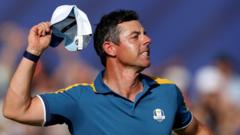What Led to Dewsbury-Hall's Booking in the Merseyside Derby?

Published: 2025-09-20 17:05:28 | Category: sport
Jack Grealish has expressed his frustration with referee Darren England following a controversial booking of his Everton team-mate Kiernan Dewsbury-Hall during the Merseyside derby against Liverpool. Grealish stated he had "never seen that in my life", questioning the decision to card Dewsbury-Hall for taking a quick free-kick before the referee was prepared. This incident has sparked discussions about the interpretation of the laws of the game.
Last updated: 15 October 2023 (BST)
Key Takeaways
- Grealish and manager David Moyes both questioned the referee's decision-making during the match.
- Dewsbury-Hall was booked for taking a quick free-kick while the referee was not ready.
- The IFAB rules on quick free-kicks do not explicitly sanction booking a player for taking one early.
- Professional Game Match Officials Limited (PGMOL) has yet to comment on the incident.
- The context of player injuries and referee distractions can influence quick free-kick legality.
The Incident Unfolded
During the tense Merseyside derby, Everton faced Liverpool, ultimately losing 2-1. The match was marked by a pivotal moment in the 78th minute when Grealish was fouled by Liverpool's Curtis Jones. Following this foul, Grealish remained on the ground, presumably in pain, and the game was temporarily halted.
In the midst of this stoppage, Dewsbury-Hall seized the opportunity to take a quick free-kick, believing he could catch the Liverpool defence off guard. However, the referee, Darren England, had not blown his whistle nor was he facing the set-piece taker when Dewsbury-Hall took the kick. Subsequently, England issued a yellow card to Dewsbury-Hall, prompting outrage from both players and fans.
Referee's Authority and Quick Free-Kicks
The law regarding quick free-kicks can often be a grey area in football. According to the International Football Association Board (IFAB), the body responsible for defining the rules of the game, quick free-kicks can be taken without the referee's whistle if certain conditions are met:
- The kick must be taken from the correct position.
- The ball must be stationary.
- No player should be injured.
- The referee must not have distracted the offending team.
In this instance, since the game was stopped for Grealish’s injury, it can be argued that the referee had effectively interrupted the flow of play, thus requiring Dewsbury-Hall to wait for the official's signal before taking the free-kick.
Managerial Perspectives: Moyes’ Reaction
David Moyes, Everton's manager, joined Grealish in voicing his displeasure with the officiating. In an interview with BBC Sport, Moyes remarked on the strangeness of some decisions that were made during the match, reflecting a broader concern about consistency in refereeing across matches. He noted that he had observed numerous instances in recent games where teams had successfully taken quick free-kicks without the referee's explicit signal.
Moyes’ comments highlight a growing frustration among managers and players alike regarding officiating standards, particularly in high-stakes matches such as a derby. This incident has reignited discussions on the need for clarity and consistency in the application of football rules.
Impact of Refereeing Decisions in Football
Refereeing decisions can significantly impact the outcome of a match, particularly in closely contested games like a derby. Players and managers often find themselves at the mercy of officials' interpretations, which can vary from one game to another. The inconsistency in how rules are enforced can lead to confusion and frustrations for all parties involved.
In recent years, there has been a push for improvements in officiating standards, including the introduction of technology such as Video Assistant Referee (VAR). However, VAR has also faced criticism, with many arguing that it has not resolved the fundamental issues of interpretation and consistency in officiating.
What Happens Next?
The ramifications of this incident may extend beyond just the match itself. PGMOL may issue a review of the officiating in this game, particularly in light of the complaints from both Grealish and Moyes. Such reviews could lead to training sessions for referees to reinforce the application of the laws, especially regarding quick free-kicks and the context in which they can be taken.
Moreover, discussions on the clarity of rules surrounding quick free-kicks may prompt changes to the official guidelines or, at the very least, a push for further education for players and officials alike. As the football community continues to reflect on this incident, it serves as a reminder of the complexities involved in the beautiful game.
FAQs
What are the rules for taking a quick free-kick?
A quick free-kick can be taken without the referee's whistle if the ball is stationary, taken from the correct position, and no player is injured. The referee must not have distracted the offending team.
Why was Dewsbury-Hall booked for his quick free-kick?
Dewsbury-Hall was booked because the referee had not blown his whistle or was not facing the player when the quick free-kick was taken, which has led to disputes about the decision's validity.
What did Jack Grealish say about the decision?
Jack Grealish expressed his disbelief, stating he had "never seen that in my life", highlighting the unexpected nature of the booking during such a critical match.
How did David Moyes respond to the referee's decisions?
David Moyes found several of the referee's decisions "really strange" and pointed out inconsistencies in how quick free-kicks have been handled in recent games.
What does this incident mean for future matches?
This incident may prompt a review of officiating standards and guidelines surrounding quick free-kicks, potentially leading to greater clarity and consistency in future matches.
As discussions around the interpretation of football rules continue, the need for clarity in officiating becomes ever more critical. How referees apply these rules can shape not only the outcomes of individual matches but also the overall integrity of the sport. #FootballRegulations #RefereeDecisions #MerseysideDerby



